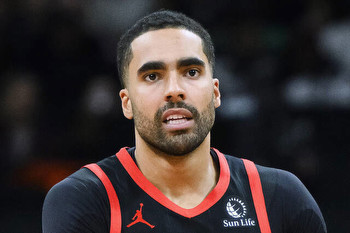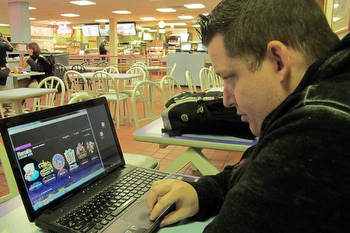Push Continues For Crackdown On Illegal Gambling

repeal of PASPA allowed for states to host legalized sports betting, there’s still a push by those inside the industry to crack down on the illegal market.
“What we’re looking for is continued focus on enforcement of laws and cracking down on illegal markets that are preying on vulnerable customers,” Casey Clark, the senior vice president of the American Gaming Association, told Sports Handle.
Clark, as well as others in the sports wagering and online gaming space, believe the regulated market is crucial to the future success of the industry. A legal market generates tax revenue for states, rather than millions of wagering dollars going untaxed. A regulated environment also provides more consumer protections than illegal, offshore markets.
Still, even with more than 30 states legalizing sports betting since 2018, the illegal market remains very much a concern for Clark and others. AGA data published last November estimated that Americans wager more than $500 billion annually on unregulated gambling platforms.
Bringing large states on board
Among the main reasons the illegal market is still a concern is that some of the largest states — California, Florida, and Texas — don’t offer legal mobile sports betting or online casino games. That leaves residents of those states prone to seeking unregulated wagering opportunities.
“At the end of the day, we’ve got to keep doing the hard work to open up the states, especially these big states,” FanDuel CEO Amy Howe said during a panel discussion at the recent G2E gathering in Las Vegas. “It’s not going to be easy.”
Florida’s sports betting system is currently held up in legal battles, and it’s unclear when people there may have consistent access to legal mobile sports wagering options.
There’s some movement in California to authorize sports betting, and a 2024 legalization effort isn’t out of the question. Still, mobile sports betting isn’t imminently coming to the Golden State.
Like California, there have been discussions in Texas about legalizing mobile sports betting and casino games, but nothing has come to fruition. The Texas legislature only meets in odd-numbered years, meaning those who’d like to gamble legally will have to wait until the 2025 legislative session for any movement.
With those three states, each with populations of at least 20 million people, currently out of the legal picture, it’s no surprise to see millions of customers seeking unregulated offerings to wager on sports. There’s also the issue of some legal U.S. sportsbooks severely limiting how much certain people can wager, pushing sharper bettors offshore.
Punishing unregulated operators
Ultimately, Clark believes it could take federal intervention to limit illegal gambling operators’ courtship of U.S. customers.
“We’re very focused on getting the DOJ and FBI and U.S. attorneys to be more active in this space, and then we’ve got to go help and make sure we’re drawing the right kind of attention to this publicly so that consumers know what’s legal and what isn’t,” Clark said.
It’s unclear if federal entities have any appetite for cracking down on illegal sports betting operators, which can require the cooperation of foreign governments to root out bad actors. Furthermore, educating consumers about legal wagering options has proven to be a challenge, and unregulated sports wagering and online casino games often populate internet searches, positioning themselves like a legal entity.
“Sports betting has become so mainstream [that] it’s confusing to a consumer, because some of these sites actually look legitimate,” Howe said.
In many cases, that leaves it up to the states to police unregulated operators. Clark is pleased with how some state regulators have handled illegal gambling, including regulators that have recently tried to stop pick’em-style fantasy games from being offered.
“Some markets like New Jersey and Florida and Michigan, they’ve done a really good job of seizing unregulated machines and cease-and-desist letters for these faux fantasy operators and doing some other things that I think are leaning more into engagement on the illegal market and trying to stop that,” Clark said.
However, several fantasy operators, including Underdog Fantasy and PrizePicks, are adamant that their pick’em-style offerings are legal fantasy games. That debate has varied from state to state.
Even with state regulators working to limit the illegal market, Clark still hopes there will eventually be federal oversight of illegal operators in a manner similar to the 2011 crackdown on online poker operators.
“Black Friday was a big deal, where the federal government shut down unregulated, illegal online poker operations,” Clark said. “Why don’t we have the same thing for illegal offshore sportsbook operators or illegal offshore iCasinos?”
































